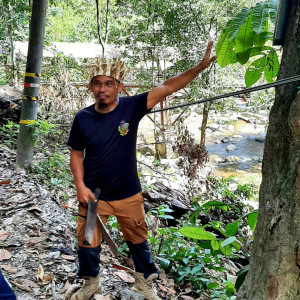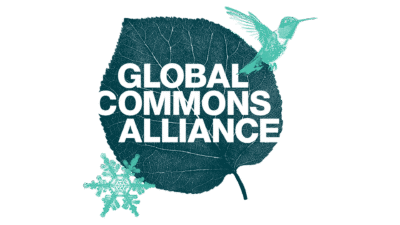Earth and human health
17/04/2024
Below is the introduction to our latest newsletter. To read newsletters in full, sign up now or subscribe on Linkedin.
Dear Planetary Steward, Dear friend of the Global Commons Alliance,
This week I am in Kuala Lumpur at the 2024 Planetary Health Summit and 6th Annual Meeting, where the Global Commons Alliance is hosting and taking part in several sessions. Today we brought together Earth system scientists, health professionals and environmental practitioners in a session to explore the interface between human health and Earth system science.
Soon after arriving I was honored to meet a charismatic Indigenous leader (pictured below), from the Orang Asli tribe who live in the forests along the spine of the peninsula in Malaysia. These forests are home to incredible biodiversity and they control water sources that the whole country depends on. But the Orang Asli’s lands are shrinking due to insufficient safeguards for such peoples to protect their land, nature and culture. Their love, in-depth knowledge and connectedness with the forests and rivers is extraordinary and their current situation is heart-breaking. They are the only ones who know how to sustain these “commons” for the good of all. No more compromise is tenable. Ensuring Indigenous Peoples are able to protect and steward their ancestral lands is critical to everyone’s survival.

Meanwhile, in Washington, DC, the 2024 Spring Meetings of the World Bank and the International Monetary Fund are now underway. Last autumn they launched a “livable planet” framework based on eight global challenges including climate, energy access, food security, water security, and protecting biodiversity and nature. We can expect to hear how this framework will be financed, as well as insight on reforms needed to deliver the $3 trillion required for meeting the Sustainable Development Goals and Paris Agreement. It’s critical that this is geared towards sustainable and resilient food and water systems. With nature loss and extreme weather impacting crops everywhere from India and the UK and the US, we must hope these meetings deliver on their theme of ‘Vision to Impact’.
Last week we saw a brilliant example of vision to impact when European judges ruled that Switzerland has breached the human rights of its citizens by not doing enough to cut national GHG emissions. In a case brought by a group of intrepid grandmothers, the ruling is the first of its kind. Johan Rockström, Earth Commission Co-Chair and Director of the Potsdam Institute for Climate Impact Research, commented: “Climate lawsuits can put pressure on governments to increase their climate policy efforts and thus advance diplomatic negotiations.” If it can be done for climate, then perhaps safeguarding the rest of the global commons could also be seen through the lens of human rights – so that we can secure a safe and just future for everyone. The Supreme Court of India also recently ruled that the ‘right to life’ of every Indian citizen includes the right to be free from the adverse effects of climate change
Next week on April 22, many around the world will be celebrating Earth Day. In the lead up, a particularly compelling campaign launches tomorrow from the Museum for the United Nations, UN Live and partners. The Sounds Right Initiative will allow people to support conservation initiatives every time they listen to a track on Spotify from ‘Nature’ as a certified artist. We welcome this creative way of raising awareness about the priceless value of Nature as well as its positive impact on our mental health, and look forward to hearing more – through our headphone speakers and otherwise!
With all my best wishes,
Jane
Subscribe now and read the rest of our bi-weekly newsletter, including news across GCA such as:
